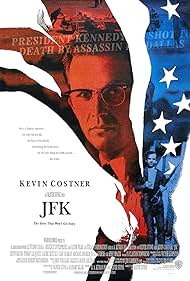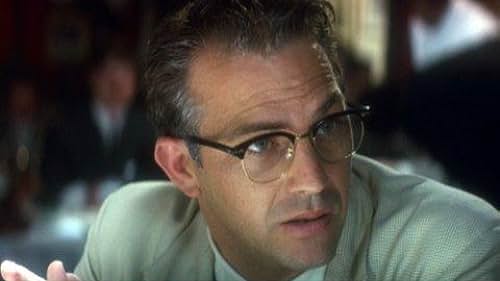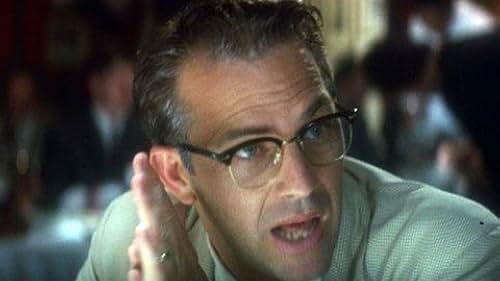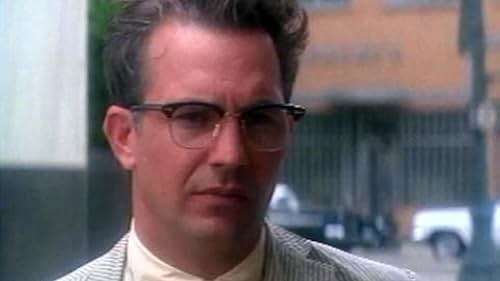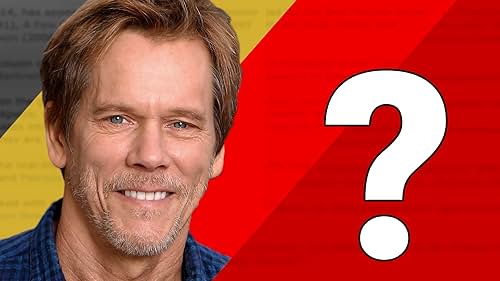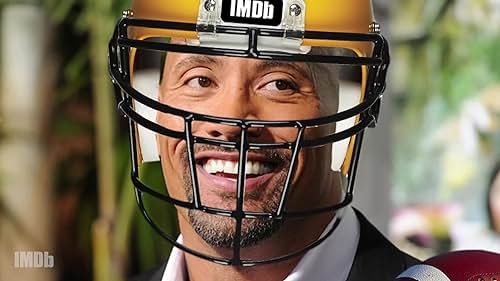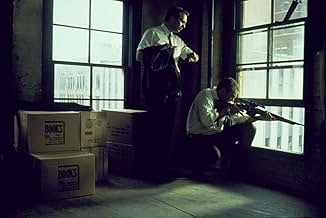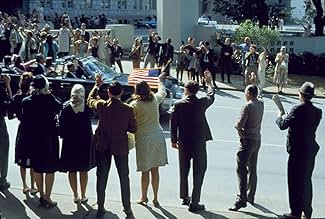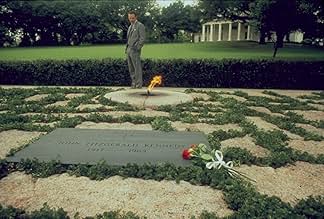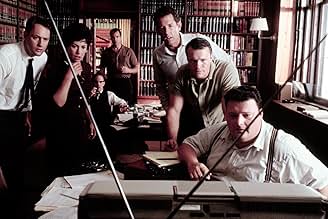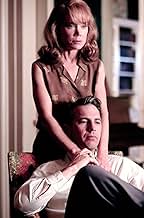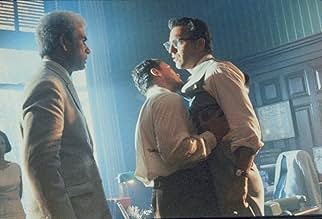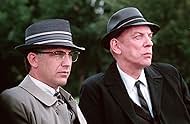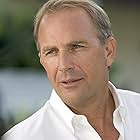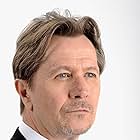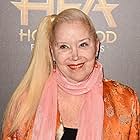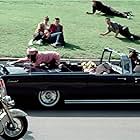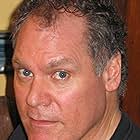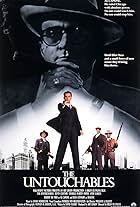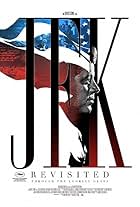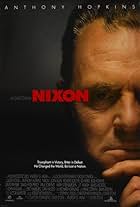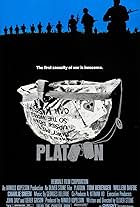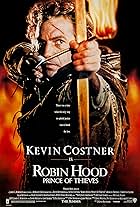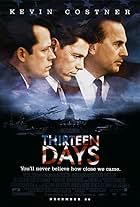New Orleans District Attorney Jim Garrison discovers there's more to the Kennedy assassination than the official story.New Orleans District Attorney Jim Garrison discovers there's more to the Kennedy assassination than the official story.New Orleans District Attorney Jim Garrison discovers there's more to the Kennedy assassination than the official story.
- Won 2 Oscars
- 19 wins & 41 nominations total
- Jackie Kennedy - Double
- (as Jodi Farber)
- Plaza Witness #1
- (as E. J. Morris)
Storyline
Did you know
- GoofsDavid Ferrie's "confession" in Fountainbleu Hotel never happened. Ferrie went to his death denying any knowledge of Oswald or the plot to kill JFK.
- Quotes
Jim Garrison: The Warren Commission thought they had an open-and-shut case. Three bullets, one assassin. But two unpredictable things happened that day that made it virtually impossible. One, the eight-millimeter home movie taken by Abraham Zapruder while standing by the grassy knoll. Two, the third wounded man, James Tague, who was knicked by a fragment, standing near the triple underpass. The time frame, five point six seconds, determined by the Zapruder film, left no possibility of a fourth shot. So the shot or fragment that left a superficial wound on Tague's cheek had to come from the three shots fired from the sixth floor depository. That leaves just two bullets. And we know one of them was the fatal head shot that killed Kennedy. So now a single bullet remains. A single bullet now has to account for the remaining seven wounds in Kennedy and Connelly. But rather than admit to a conspiracy or investigate further, the Warren Commission chose to endorse the theory put forth by an ambitious junior counselor, Arlen Spector, one of the grossest lies ever forced on the American people. We've come to know it as the "Magic Bullet Theory." This single-bullet explanation is the foundation of the Warren Commission's claim of a lone assassin. Once you conclude the magic bullet could not create all seven of those wounds, you'd have to conclude that there was a fourth shot and a second rifle. And if there was a second rifleman, then by definition, there had to be a conspiracy.
- Crazy creditsClosing statement: What Is Past Is Prologue
- Alternate versionsA director's cut prepared by Oliver Stone for the video release features 17 minutes of footage not included in the theatrical version. Among the new material:
- Guy Bannister and his secretary talk briefly about Oswald and laugh.
- New flashbacks of Oswald's life in Dallas with his wife after his return from Russia and his contacts with George De Mohrenshildt, Janet and Bill Williams (the man who gets Oswald a job at the book depository).
- When Garrison and his assistant are at the book depository, they discuss the fact that the motorcade route was changed by then Dallas mayor Earle Cabell, brother of general Charles Cabell fired by Kennedy in 1961.
- A fake Oswald (Frank Whaley) is seen in a flashback test-driving a new car and talking about Russia to the salesman.
- In another flashback, Oswald is introduced to the New Orleans Cuban community and meets Sylvia Odio, leader of an underground anti-Castro movement.
- A new flashback of Oswald and Clay Shaw seen together at a voter's registration drive in September '63.
- Jim Garrison appears on "The Jerry Johnson Show" on TV to be interviewed. He tries to show photographs and defend his theories but he's cut short by host Jerry Johnson (John Larroquette).
- Bill Broussard meets Jim Garrison at the airport where he's leaving for Phoenix, AZ and tells him the mob will attempt to assassinate him. After a few minutes he has to flee from a public restroom when he hears strange voices in the next stall and is approached by an unknown man (a cameo by production designer Victor Kempster) who pretends to be a friend of him.
- Garrison and his staff discover that Broussard has disappeared from his apartment, and argue about the real reason why Clay Shaw has been brought to trial. While they're talking, Garrison sees Robert Kennedy on TV and says "They'll kill him before they'll let him be president".
- During the trial, more witnesses against Shaw are shown than in the theatrical version, including a obviously insane man (Ron Rifkin) who claims that Shaw discussed killing Kennedy with him.
- ConnectionsEdited into Malcolm X (1992)
- SoundtracksDrummers' Salute
Arranged by D. G. McCroskie
Performed by The Royal Scots Dragoon Guards
Courtesy of Fiesta Records Co. Inc.
"JFK" is a film that stars many A-list actors in major and minor roles, but they give deep imprints nonetheless. Tommy Lee Jones, the Oscar nominated actor of the film, gives a performance that I almost missed due to my not recognizing him. Jones plays Clay Shaw, a powerful figure in New Orleans and a secret homosexual who knew about the plot to kill the president. Gary Oldman is fantastic as the widely publicized murderer, Lee Harvey Oswald. Joe Pesci, fresh from his Oscar in "Goodfellas", as Dave Ferrie, a man who is struggling to cope with the heavy accusations and mysteries of the JFK murder. Donald Sutherland in an Oscar-worthy performance, as an informant that talks to Jim Garrison, played wonderfully by Kevin Costner. Other great appearances include Kevin Bacon, Sissy Spacek, Michael Rooker, and even Walter Matthau in a bit appearance.
Many of these fine performances were worthy of Oscars, but if there is one man that deserved an Oscar more than anyone else, it would have to be Oliver Stone, who did not win Best Director OR Best Picture. Who did he lose to? "Silence of the Lambs". While I do consider the film to be an excellent thriller featuring one of Anthony Hopkins' greatest performances, I must say that in terms of scope and daring, "JFK" was a far superior film. The cinematography was far more varied and ambitious, as well as the subject matter itself. I can understand why "JFK" was passed over, but the reasons are not fair to the extraordinary film given to us.
The appearance of "JFK" is astounding. You are taken to a time of much distrust, horror, confusion, corruption, and cover-up. The murders of JFK, Martin Luther King, and RFK all influenced the time periods and the peoples. Many people tried not to think about it, or else they were scared into silence. Some, like Jim Garrison, tried to present the truth of "JFK", and their efforts are being felt even now.
Before I saw this film, I had seen Oliver comment that "JFK" was a movie in which he got all the crazy theories and presented them. He was not implying that everything was true, and some of it isn't true. But after seeing this film, I am convinced there was definitely more to the story than was originally told, as I believed even before I saw "JFK". This gave me a knowledge of the period, and awareness of the people participating in the drama of the time.
The point of the film is not entirely based on the story of the JFK assassination. It is an outcry from Oliver Stone to remind us that truth is never simple, nor is it always presented by the government. People must struggle to find the truth sometimes, and if it is covered up, it could be lost forever. The film is an attempt to show us that the murder of President Kennedy was a time of much confusion and mix-up. So what was true and what was not? Many eye-witnesses gave conflicted views, while other circumstances were strange in their origins and happening. And while he gave us this, Oliver Stone also presented us with the best film that he has yet made, and his resume is incredible as it is.
I have seen the films "Platoon" and "Born on the Fourth of July": films that Oliver Stone won Best Director for. Why did he not win for "JFK"? Why did it only win 2 Oscars? For me, it is another example of how disappointing the Oscar results can be. I urge all to see this epic film of mystery and deceit, of truth and lies, the work of a master film director known as Oliver Stone.
Details
Box office
- Budget
- $40,000,000 (estimated)
- Gross US & Canada
- $70,405,498
- Opening weekend US & Canada
- $5,223,658
- Dec 22, 1991
- Gross worldwide
- $205,405,498
- Runtime3 hours 9 minutes
- Color
- Sound mix
- Aspect ratio
- 2.39 : 1
Contribute to this page

